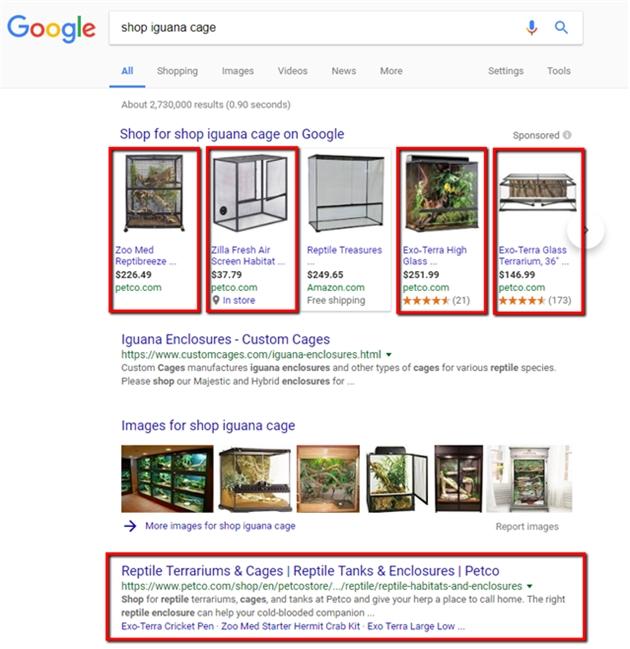It's an age-old conundrum.
Hundreds of marketing articles have declared that PPC and SEO should not work in independent silos. But old-fashioned conventions keep many digital marketing agencies and marketers from truly integrating the two. In some models, the agency's SEO group is even viewed as a threat that can hurt the agency's PPC-fee revenue.
Also, sometimes, one vendor owns the client brand's SEO relationship, and another independent firm owns the PPC management. In that case, the client may not feel comfortable putting both "families" in the same room. The client then plays the role of middleman—but may not always succeed in passing valuable information back and forth.
This article will share a few important reasons for tying your PPC and SEO together into collaborative campaigns, and also explain why it's necessary to destroy those silos.
Customer Funnel Coverage
Strategic marketing is more critical for search than ever before. Sure, there is still room for select tactics, but so much of what we've done in search marketing to date has been tactical.
On the SEO side, many of those tactics simply don't work because Google no longer allows them. RIP directory links, press release links, PageRank sculpting, etc. The sophistication of Google's organic search within the last few years should be driving SEO marketers to think outside the box. (Read my post on the subject: "How to Build SEO Strategies Effectively (and Make Them Last)").
This need for bigger, better strategies leads to longer execution, which is one of the reasons SEO takes longer than in previous years.
Sometimes you don't have that kind of time, especially if you're a retailer in Q4, or a company trying to build awareness around a new market segment. Adding to the complexity, the customer funnel has many additional openings now because of the ever-changing behaviors of online customers.
Enter coordination with paid search.
You want to be present in as many online entry points as possible, so don't discount the value of paid search here.
SEO is typically the channel we think of for catering to informational searches or the early-stage funnel. If you aren't ranking organically, buy those searches while building the organic groundwork. Don't let your prospective funnel be negated by a competitor who is already present for key early-stage queries.
If you think of PPC only as a direct ROI channel, then you may not like that idea much, but you're also not seeing the bigger picture of a holistic search marketing strategy that considers attribution.
Metric-Gathering From PPC for SEO
It's no secret: Google has allowed more data to flow through the AdWords accounts for those who pay Google for advertisements; but, on the SEO side, we can't get the keyword-level traffic, or even accurate estimated search numbers. For SEO, the golden days of rich analytics data is a distant memory.
But that doesn't mean SEO marketers can't leverage PPC insights. Why not use PPC to test the validity of your SEO campaigns? Buy the keywords; pay Google for the data; and hit some business revenue goals at the same time.
If you think your website should rank for the term "iguana walking services" because you believe there's a market out there, you could use PPC to validate before jumping into a long SEO campaign. Traditionally, an SEO marketer would look at Keyword Planner or a tool like SEMrush to get estimated search volume. Then, when you see zilch in terms of data, you might be discouraged and scrap any future efforts. However, because of the fringe nature of your service, Google's reporting threshold may be too high. On the other hand, a well-crafted PPC ad on "iguana walking services" and related keywords may tell a different story.
So which would you rather have: the estimated, directional data provided by keyword research tools—or true data from actual searchers clicking your ads?
Maybe "iguana walking services" wasn't the term searchers use. Broad Match in AdWords will cast a wider net and provide keywords (via the Search Query Report) you wouldn't otherwise get from standard keyword research tools.
Granted, the above example is suited for a small company with a niche product. Keywords with lower competition are much easier to rank in SEO. This process might pay SEO dividends faster than a competitive term, but that's really the only difference. The concept doesn't change at all. Larger companies still need to be armed with this kind of data for any new product or product line, service, or consumer campaign.
SERP Ownership
Study after study has found that having a paid ad visible in conjunction with an organic listing improves the brand's influence.
"Wow, Google listed them a bunch. They must be good," thinks the average searcher.

You want to be seen, and you want to push the competition down as far as you can. We know searchers often don't scroll far down pages; instead, they refine their search terms. Play to that tendency. Own as much real estate as possible. Take advantage of the PPC extensions and the SEO rich snippets, thus increasing the pixel height of both your paid and free showings.
SEO marketers are frustrated with how much real estate Google gives to its paid ads. And it seems only to be getting worse. And so, many marketers and business owners want to offset their PPC spend with better SEO coverage. But before you hit pause after an SEO win, make sure you're not hurting yourself in the long run.
Understanding Your Audience's Tone
This tip is similar to what I wrote about under the "Metric-Gathering From PPC for SEO" heading above, but it's focused more on the experience and connection with the audience rather than just the keywords and intent behind their queries.
A/B-testing is easy with PPC. Maybe you're a stuffy B2B company with a traditionally dry tone in your messaging. Before you jump in and add a wacky tone to your landing page copy because you read a blog post saying it's the right thing to do, test different messaging approaches. A/B-test your ad messages and your landing pages, and buy relevant traffic to all the options. The learnings should be quick to analyze, and they will help you set the strategy for a future content strategy or copy refresh.
What psychological approaches and influence plays work for your segment? What kinds of products and services does the segment relate to? What searcher intelligence can we pull out of their clicks?
Use the resulting PPC data to improve your active and future SEO campaigns.
* * *
It's not SEO vs. PPC at all. Both channels are extraordinarily valuable in their own ways—and even more powerful when coupled. If you're looking for maximum relevance and coverage in search engines, there's simply no better approach than joining the two channels together.




